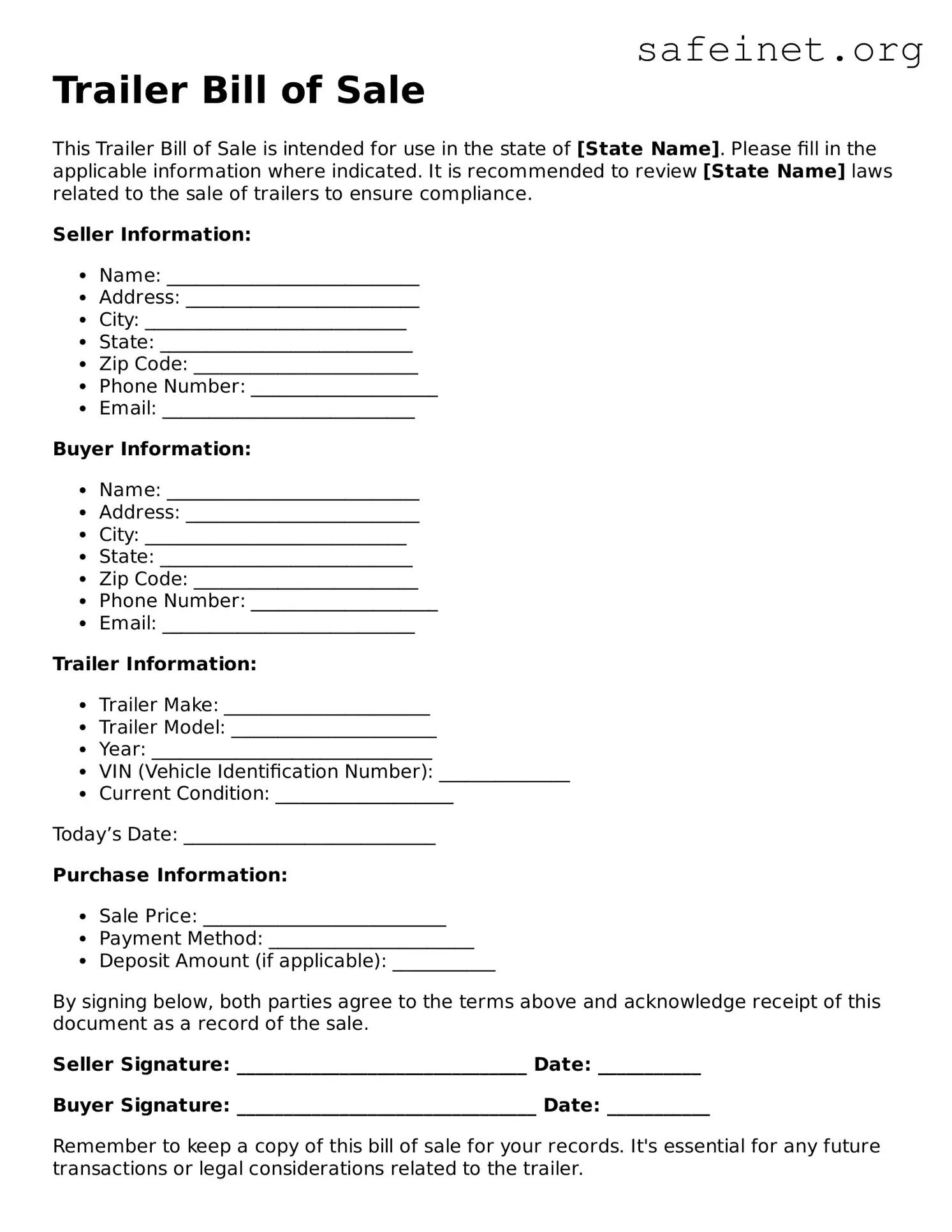What is a Trailer Bill of Sale?
A Trailer Bill of Sale is a legal document that transfers ownership of a trailer from a seller to a buyer. This form serves as proof of the transaction and includes important details about the trailer and both parties involved. It is essential for registration and titling purposes.
Why do I need a Trailer Bill of Sale?
This form is necessary if you are buying or selling a trailer. It protects both the buyer and the seller by providing a written record of the transaction. It can help resolve disputes and is often required when registering the trailer with the Department of Motor Vehicles (DMV) or other state agencies.
What information is included in a Trailer Bill of Sale?
The Trailer Bill of Sale typically includes details such as the names and addresses of the buyer and seller, the trailer's make, model, year, VIN (Vehicle Identification Number), and any other relevant features. The sale price and date of the transaction are also mentioned. Both parties should sign the document for it to be valid.
Is a Trailer Bill of Sale legally binding?
Yes, a properly completed and signed Trailer Bill of Sale is a legally binding document. It establishes the transfer of ownership and can be used in legal proceedings if disputes arise. Ensure accuracy and clarity in the information provided to avoid complications.
Do I need to have the Trailer Bill of Sale notarized?
While notarization is not always required, it is a good practice. Having the document notarized adds an extra layer of credibility and can help prevent disputes between the parties. Check your state’s specific regulations to confirm if notarization is necessary.
Can I use a Trailer Bill of Sale for any type of trailer?
Generally, a Trailer Bill of Sale can be used for various types of trailers, including utility trailers, RVs, horse trailers, and boat trailers. However, specific requirements may vary depending on your state, so verify that the form meets local regulations for the trailer type in question.
What if the trailer has a lien on it?
If a trailer has a lien, it means that there is an outstanding loan or obligation tied to the trailer. The seller must resolve this lien before transferring ownership. It’s essential to clear any debts to ensure the buyer receives a clear title without encumbrances.
Where can I obtain a Trailer Bill of Sale form?
You can find a Trailer Bill of Sale form online through various legal document websites, state agencies, or at office supply stores. Many templates are available for free or for purchase, ensuring you have a customizable and compliant document tailored to your needs.
What should I do after completing the Trailer Bill of Sale?
After completing the Trailer Bill of Sale, both parties should keep a signed copy for their records. The buyer may need to present the document when registering the trailer with the DMV or obtaining insurance. Make sure to follow any additional steps required in your state for a smooth transition of ownership.
